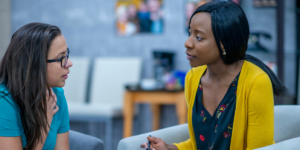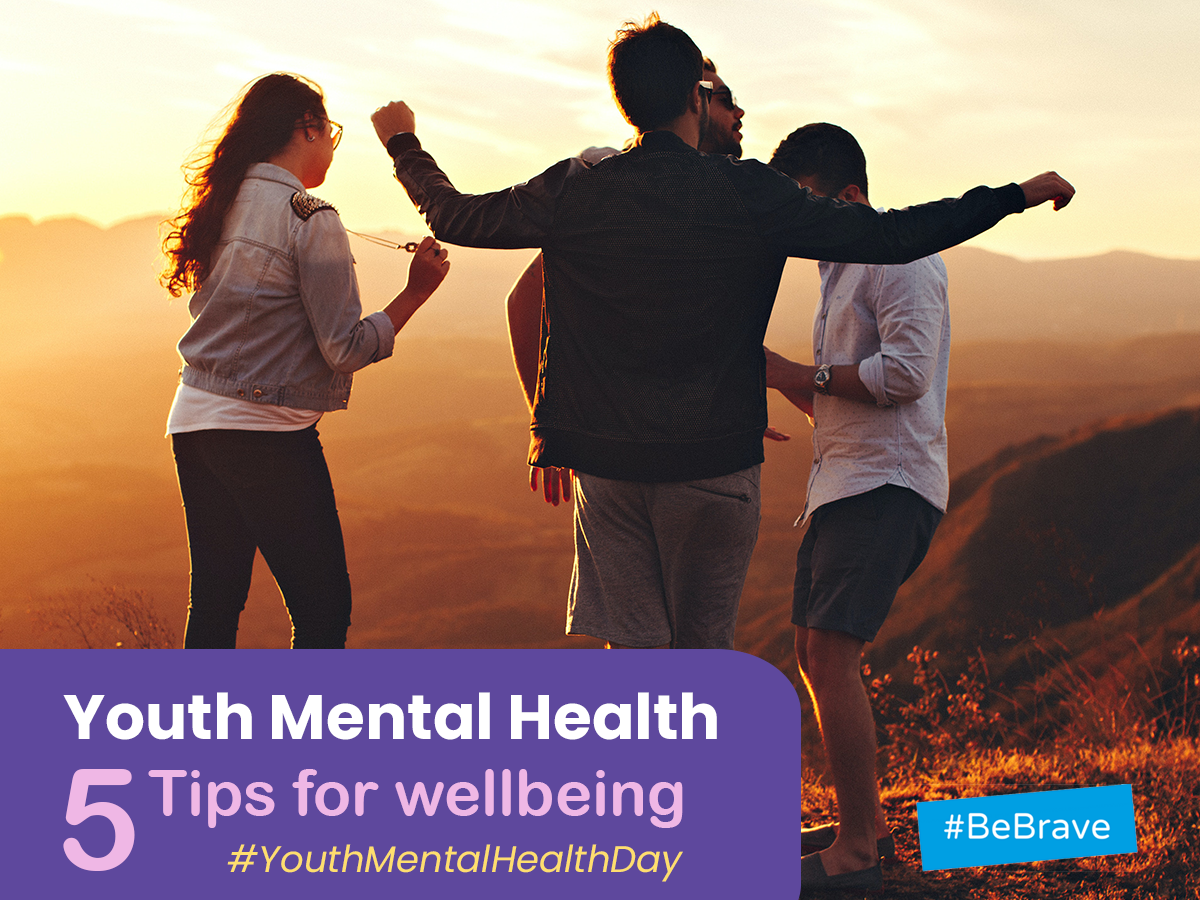What is Youth Mental Health Day?
Youth Mental Health Day (YMHD) encourages understanding, discussion and awareness of mental health in young people and highlights the importance of intervention in teenage mental health issues.
Being a teenager can be tough. Many teenagers will experience problems with their mental health with four in ten young people reporting that they experience difficulties such as anxiety and low mood.
Challenges faced by blind and partially sighted young people
Being a teenager with a vision impairment can be even harder. Research by the RSBC found that those affected by sight loss were more than twice as likely to have experienced difficulties with unhappiness or depression than the UK average. One of the main challenges faced by this group of young people is social isolation. They may find it difficult to meet up with friends and take part in many of the social activities and hobbies that their sighted peers can easily access. This then leaves them with feelings of loneliness and isolation with over half of young people with sight loss reporting that they feel left out, all or most of the time.
5 tips for well-being by Jody, RSBC Family Practitioner
Our Family Practitioners work with many young people who are struggling with their visual impairment as well as experiencing mental health issues, low self-esteem, and feelings of social isolation. We work with teenagers and support them to improve their mental health and emotional well-being.
Here are 5 tips that our Family Practitioner finds helpful to aid good mental health:
1. Give young people a confidential space to talk and explore their feelings in a safe and non-judgemental environment.

It’s important that young people feel that they can talk openly about their feelings and that we respect their emotions and respond with active listening and empathy. This helps build up trust in the relationship and enables the young person to talk openly and honestly.
2. Help them to identify their needs and accept the difficult or challenging feelings that they are experiencing.

One way is to help them explore what they are finding difficult but also acknowledge that the challenges they are they are experiencing are normal and to be expected. It’s important to validate their feelings and give them permission to feel angry, sad or any other feelings they are experiencing.
3. Help them to build on their self-esteem, resilience, and confidence.

This can be done by helping them challenge their negative thoughts and think about how they have dealt with difficult situations in the past. We explore what skills they have used before and how these skills can help them deal with the ongoing challenges they face. It’s also important that we help them acknowledge how strong they are and celebrate the things they are really good at too.
4. Work to help them identify coping strategies for the ongoing challenges that they face and give them the tools they need to put these strategies into practice.

For instance, we can ask them to reflect on coping strategies and skills they’ve previously employed to navigate challenging situations. Then, engage in a discussion about adapting these strategies to the new situations they encounter. We can help them problem solve and think about what skills and tools that they have and show them how they can use them in different situations.
5. Encourage them to be #BeBrave. Help to give them the confidence to push themselves to try something new.

This could be by encouraging them to try different activities that might initially push them out of their comfort zone – but that they might love! Many young people with a visual impairment struggle with team sports and ball games, but they could be brilliant at sports such as swimming and climbing – they just need to give it a go. Encouraging young people to take part in physical activities can also play a key role in helping them manage their mental health.
Besides, they might also find meeting other teenagers with a vision impairment really helpful and meeting online might feel more manageable initially. Once they feel more confident, they might feel brave enough to meet people face-to-face.
